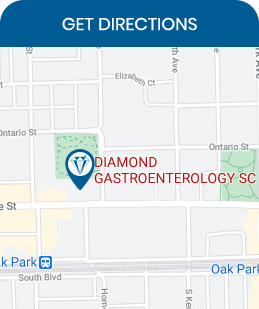Diarrhea Treatment Specialist in Oak Park IL
Diarrhea can be life-threatening if not treated properly on time. If you or someone you know is suffering from diarrhea, come to Diamond Gastroenterology for comprehensive treatment. For more information, call us or book an appointment online. We serve patients from Oak Park, IL and surrounding areas.


Additional Services We Offer
▸ Endoscopy
▸ IBS Treatment
▸ Crohn’s Disease
▸ Ulcerative Colitis
▸ Abdominal Pain
▸ Colonoscopy
▸ Rectal Bleeding
▸ Colon Cancer Screening
▸ Procedures
▸ Specialties
Additional Services We Offer
▸ Endoscopy
▸ IBS Treatment
▸ Crohn’s Disease
▸ Ulcerative Colitis
▸ Abdominal Pain
▸ Colonoscopy
▸ Rectal Bleeding
▸ Colon Cancer Screening
▸ Procedures
▸ Specialties





